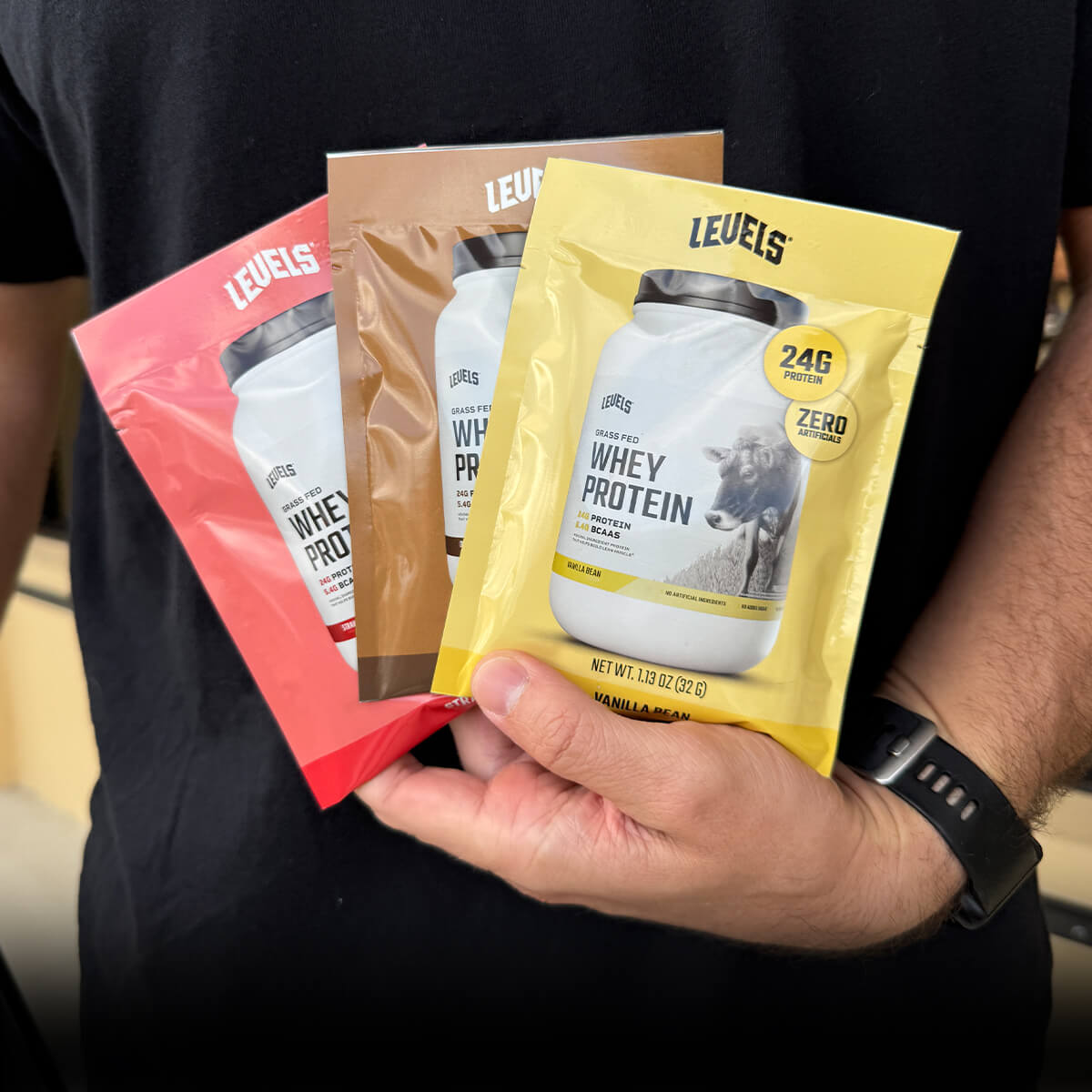Intermittent fasting is a simple tool for weight loss and health, and it’s become more and more popular over the last few years.
One reason for the popularity is that intermittent fasting is refreshingly easy to do. You eat all your meals in a short amount of time — say, between noon and 6 PM — and fast for the rest of the day.
Despite its simplicity, fasting can have a profound impact on your health. It’s great for weight loss, and it may also improve cardiovascular health, mental clarity, brain function, and inflammation[*][*].
And if you’re new to fasting, you may have a few questions. One in particular is how fasting pairs with coffee.
Can you drink coffee while you’re fasting? Or will coffee break your fast?
Just as importantly, will coffee interfere with the benefits of fasting?
This article covers how coffee affects intermittent fasting, and whether or not you should drink coffee during your fast.
Does Black Coffee Break a Fast?
First off: black coffee will not interfere with your fast.
The general rule for fasting is that you want to eat all your calories during your eating window, and consume zero calories during your fasting window.
Technically, black coffee does have calories — about five calories per cup, thanks to trace amounts of protein and coffee oils.
Fortunately, black coffee’s calorie count is so insignificant that it won’t interfere with your fast.
Several studies have found that black coffee does not affect your blood sugar or glucose uptake while you’re fasting — in other words, it has no meaningful impact on your metabolism.
You can have coffee and other zero-calorie drinks during your fasting period and they won’t interfere with the benefits of fasting.
In fact, there’s a compelling case for including coffee in your intermittent fasting routine. Coffee may actually enhance your fast and provide some added benefits.
The Top 5 Benefits of Fasting (And How Coffee Affects Them)
Fasting is great for you in a variety of ways, from weight loss to brain function. And it turns out coffee shares a lot of the same benefits, which makes it pair exceptionally well with fasting.
1. Weight Loss
Several studies have found that intermittent fasting is an effective way to burn fat and lose weight[*][*][*].
In fact, a lot of people prefer fasting to a traditional calorie-restricted diet. Skipping food for most of the day and then eating a large, satisfying meal can feel more sustainable than staying in a constant state of mild hunger and never being fully satiated[*].
And while fasting alone is great, adding coffee (specifically caffeinated coffee) to your fast may make weight loss even easier. Caffeine has a thermic effect, meaning it speeds up your metabolism so you burn more calories[*].
Some people also say that caffeine suppresses their appetite. Drinking caffeinated coffee may help you fast without feeling too hungry — although studies show mixed results on the topic.
Caffeine’s effects depend largely on genetics and change a great deal from person to person, so mileage may vary when it comes to coffee and controlling hunger.
2. Metabolic Health
Fasting is also great for your overall metabolic health — and pairing it with coffee may give you an extra health boost.
Research shows that fasting and coffee can both be good for preventing type 2 diabetes, and they may work especially well if you combine them.
Fasting stabilizes blood sugar and protects against insulin resistance[*][*], and there’s a strong correlation between coffee intake and reduced risk of developing diabetes or blood sugar control issues.
In the study Coffee Consumption And Reduced Risk Of Developing Type 2 Diabetes, the authors suggest that coffee may protect against diabetes because it’s so high in antioxidants, and because it’s a strong anti-inflammatory.
Pairing fasting and coffee may also be good for preventing metabolic syndrome — a combination of high blood pressure, inflammation, poor blood sugar control, and weight gain[*].
Subscribe to get the latest advice, sales, discounts, product drops and more. Join now and get 15% off your first order.
3. Mental Clarity
Caffeinated coffee is excellent for mental clarity and overall brain function.
Caffeine improves explicit memory — your ability to actively recall things (as opposed to implicit memory, which is what drives your habits and automatic mental processes)[*]. Coffee (not just caffeine) speeds up reaction time and improves attention and vigilance[*].
In short, caffeinated coffee enhances your focus and mental clarity.
The link between intermittent fasting and cognitive enhancement isn’t quite as clear. However, many people who try fasting say it leaves them mentally sharper, especially when it comes to focus and attention.
And while there aren’t human studies to back up the claim, several studies in mice have found that short-term fasting improves cognitive function[*][*].
4. Brain Health
One of intermittent fasting’s main claims to fame is that it’s great for brain health, especially when it comes to keeping your brain sharp as it ages.
It turns out coffee may share some of those brain-protecting benefits, making fasting and black coffee an excellent combination for staying mentally sharp throughout your entire life.
When you fast, your liver begins producing more ketones — energy sources for your cells that come from burning fat. Those ketones get into your bloodstream and go to your brain.
Ketones are the preferred fuel for many of your brain cells[*], which may explain why fasting can delay and improve symptoms of dementia, both in humans and animals[*].
Caffeinated coffee also increases your ketone levels[*], and there’s a strong link between lifelong coffee consumption and healthy brain aging, prevention of mental decline, and decreased risk of stroke[*].
Studies in mice have found that both fasting and coffee trigger autophagy, which is like spring cleaning for your cells[*][*]. During autophagy, your cells replace or repair any damaged or old parts.
Basically, autophagy turns damaged cells into shiny new versions of themselves.
It’s worth noting that a study in mice found that short-term fasting triggers “profound neuronal autophagy,” meaning it causes massive, widespread brain cell repair[*]. That could explain why fasting is so good for long-term brain health.
5. Inflammation
A lot of people with inflammatory diseases like arthritis or irritable bowel syndrome (IBS) say that intermittent fasting helps them feel better.
It turns out there’s a good reason why. Short-term fasting reduces inflammation body-wide[*]. People who fasted for Ramadan — eating no food from sunrise to sunset — showed a marked decrease in C-reactive protein and interleukin-6, two of the biggest indicators of inflammation[*].
And fasting isn’t alone: coffee also decreases C-reactive protein and interleukin-6[*].
If you pair fasting with black coffee, you’re doubling down on anti-inflammatory benefits.

Bottom line: Fasting and coffee go very well together. They share a lot of health benefits, and it’s worth your time to try combining them. You might be surprised by how good you feel.
What Coffee Additives Can You Use When Fasting?
While black coffee pairs beautifully with fasting, a lot of common coffee additives do not.
Anything that has calories will break your fast and reduce the benefits you get from intermittent fasting. That includes:
- Cream
- Sugar (including natural sugars, like agave and maple syrup)
- Butter
- Milk
- Cocoa powder
- Dairy alternatives (almond milk, oat milk, etc.)
- Protein powder (collagen, whey)
To get the most out of intermittent fasting, avoid the above coffee additions.
Good news, though: you can still use zero-calorie sweeteners in your coffee. Stevia and monk fruit extract are good options — as a general rule, you may want to avoid artificial sweeteners like sucralose and aspartame.
You can also add spices to your coffee. Cinnamon and nutmeg pair well with coffee, and they’re low enough in calories that they won’t break your fast.
Does MCT Oil Break Your Fast?

Medium-chain triglyceride (MCT) oil is a type of oil derived from coconuts that’s great for mental clarity and a quick boost in energy. A lot of people like adding MCT oil to their morning cup of coffee.
But will MCT oil break your fast?
Technically, yes. MCT oil has calories, and it will probably take you out of a fasted state.
That said, your body processes MCT oil differently than it does other foods. Your liver rapidly converts MCT oil into ketones, the fat-based energy sources that you read about earlier.
If your goal is weight loss, you may want to consider adding MCT oil to your morning coffee. It will break your fast, but it may still speed up your results.
MCT oil can be an excellent tool for weight loss. People who swap other fats with MCT oil burn more calories[*][*], and people who ate MCT oil daily lost fat over time[*].
MCT Oil and Hunger Suppression
MCT oil also suppresses hunger. Your liver rapidly turns MCT oil into ketones, which reduces appetite[*], and several studies have found that people who eat MCT oil feel more full on fewer calories[*][*][*].
So while MCT oil technically breaks your fast, if your goal is weight loss and hunger suppression, adding MCT oil to your morning coffee is a good move. It may make you less hungry, helping you fast longer and more consistently, and it speeds up your metabolism, which can help with gradual fat loss.
The Bottom Line: Fasting and Coffee Are Great Together
Fasting and coffee pair well together. They share a lot of the same health benefits, and combining them can make a big difference in how you think and feel.
But if you want the benefits of both coffee and fasting, make sure you don’t add anything caloric to your morning coffee. Take it black, or use a zero-calorie sweetener like monk fruit or stevia. Cream, sugar, butter, and other calorie-containing coffee additives will interfere with your fasting.
That said, if you’re fasting to lose weight, you may want to try stacking intermittent fasting, coffee, and coconut MCT oil. The three together are a powerful combination for long-term fat loss.














